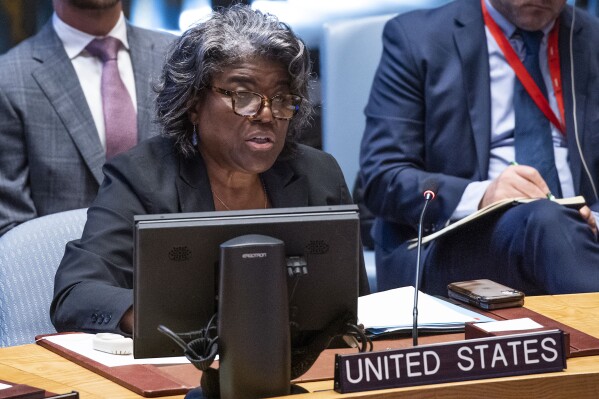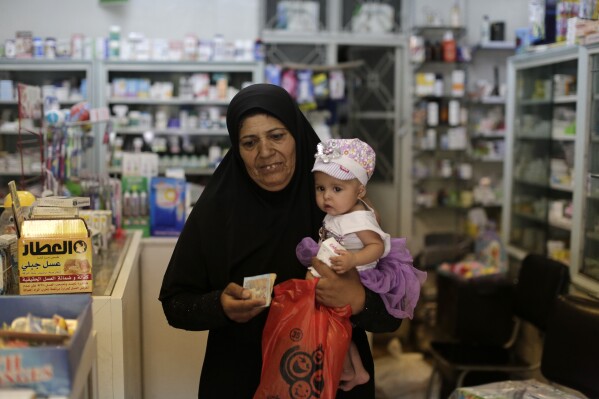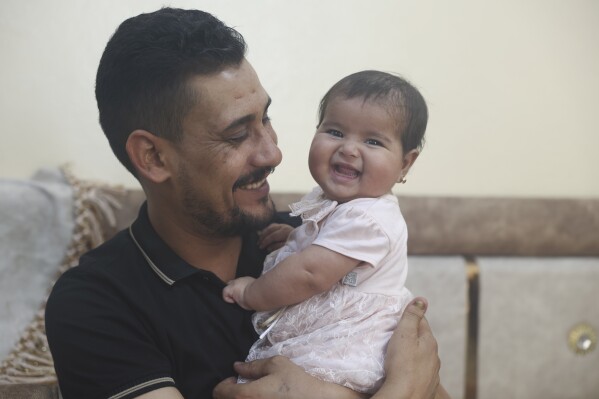The UN announces that a deal has been reached with Syria to reopen border crossing from Turkey
UNITED NATIONS (AP) — The United Nations announced late Tuesday that an agreement had been reached with Syria to reopen the main border crossing from Turkey to its rebel-held northwest for six months.
U.N. Secretary-General Antonio Guterres welcomed the “understanding” reached following talks between U.N. humanitarian chief Martin Griffiths and Syrian officials, U.N. deputy spokesman Farhan Haq said.
The agreement will reopen the Bab al-Hawa crossing which has been used for 85% of deliveries to the northwest Idlib region.
Haq’s statement followed his earlier announcement Tuesday that Syria has agreed to keep two other crossings to the northwest, Bab al-Salameh and al-Rai, open for three months until Nov. 13.
 US vows to keep Syria’s chemical weapons program in UN spotlight over Russian and Chinese opposition
US vows to keep Syria’s chemical weapons program in UN spotlight over Russian and Chinese opposition
 Syria’s pharmacies syndicate says drug prices to increase 50% as the country’s pound hits a new low
Syria’s pharmacies syndicate says drug prices to increase 50% as the country’s pound hits a new low
 Syrian baby born under earthquake rubble turns 6 months, happily surrounded by her adopted family
Syrian baby born under earthquake rubble turns 6 months, happily surrounded by her adopted family
The U.N. Security Council had failed to adopt either of two rival resolutions on July 11 to authorize further deliveries through the Bab al-Hawa border crossing to Idlib province.
It is home to about 4.1 million people, many of whom have been forced from their homes during the 12-year civil war, which has killed nearly a half million people and displaced half the country’s pre-war population of 23 million. Hundreds of thousands of people in Idlib live in tent settlements and had relied on aid that came through the Bab al-Hawa border crossing.
Syrian President Bashar Assad opened the two additional crossing points from Turkey at Bab al-Salameh and al-Rai to increase the flow of assistance to victims of the devastating magnitude 7.8 earthquake that ravaged northwestern Syria and southern Turkey on Feb. 8. He extended their operation for three months in May until Aug. 13.
Haq said the Syrian government informed Griffiths in a letter on Sunday that it would allow the U.N. to continue using the two crossings until Nov. 13.
Syria had set conditions for the renewal of deliveries through Bab al-Hawa, which the U.N. humanitarian office had largely rejected.
Haq’s statement gave no details on the agreement reached with the Syrians.
Syria has insisted aid deliveries must be done “in full cooperation and coordination with the government,” that the U.N. would not communicate with “terrorist organizations” and their affiliates, and that the International Committee of the Red Cross and the Syrian Arab Red Crescent would run aid operations.
The U.N. responded that the prohibition on communicating with groups considered “terrorist” by the Syrian government would prevent the U.N. and partner organizations from engaging “with relevant state and non-state parties as operationally necessary to carry out safe and unimpeded humanitarian operations.”
Stipulating that aid deliveries must be overseen by the Red Cross or Red Crescent is “neither consistent with the independence of the United Nations nor practical,” since those organizations “are not present in north-west Syria,” it said in a letter.
The letter also noted that the Syrian government’s request that aid deliveries should be carried out in “full cooperation and coordination” with Damascus requires “review.”
Disclaimer: The copyright of this article belongs to the original author. Reposting this article is solely for the purpose of information dissemination and does not constitute any investment advice. If there is any infringement, please contact us immediately. We will make corrections or deletions as necessary. Thank you.







